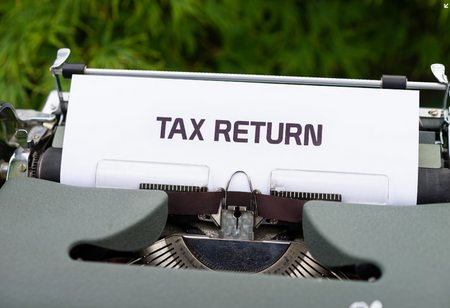Are you a little anxious about optimizing your tax savings with March 31st approaching? But fear not - before the clock strikes twelve (tax time), here are some last-minute tax-saving advice.
Initially, which tax regime are you under—the Old Tax Regime or the New Tax Regime? Recall that the new system removes most deductions while offering lower tax slabs. It's okay if you haven't made up your mind yet! We will discuss both sides' possibilities.
Individuals who choose the previous tax system:
Optimize 80C: Here's where Section 80C, your most powerful tool for reducing taxes, comes into play. Options such as National Pension System (NPS), Equity Linked Savings Schemes (ELSS - mutual funds that invest in stocks), Public Provident Fund (PPF), and more allow you to invest up to Rs 1.5 lakh. Recall that they help you increase your future corpus in addition to saving taxes.
"Under Section 80C, contributions to a Public Provident Fund (PPF) account, and investments in Equity Linked Savings Schemes (ELSS) mutual funds and Tax-Saving Fixed Deposits (FDs) are eligible for tax deductions up to Rs. 1,50,000 per financial year. For instance, if you invest Rs. 1,50,000 in any of the tax saving options available under Section 80C and you're in the 30% tax bracket, you'd save Rs. 45,000 in taxes (Rs. 1,50,000 * 0.30)," said Priya Dhankhar, Senior Associate, SKV Law Offices.
The NPS bonus points: In addition to the Section 80C maximum, contributions made to the National Pension Scheme (NPS) may be further deductible under Section 80CCD(1B) for a maximum of Rs 50,000. Thus, you would save Rs. 15,000 in taxes (Rs. 50,000 * 0.30) if you made a Rs. 50,000 contribution to NPS and you were in the 30% tax rate.
Choosing Health Insurance:
Did you know that, up to Rs. 1 lakh, you can deduct health insurance premiums for your dependant parents, spouse, and yourself? Win-win!
"Health Insurance Premiums for self and family are eligible for deductions under Section 80D for up to Rs. 25,000 (Rs. 50,000 for senior citizens). If you pay Rs. 25,000 for health insurance premiums and you're in the 20% tax bracket, you'd save Rs. 5,000 in taxes (Rs. 25,000 * 0.20)," said Dhankar.
Under Section 80C, you can deduct the tuition costs for up to two children's schooling.
Remember that you can deduct the interest component of your home loan repayment under Section 24: Repayment of home loans has tax advantages. Although Section 80C allows for deductions for principal repayment, Section 24(b) allows for deductions for interest paid on a home loan.
HRA allowance: Section 10(13A) of the Income Tax Act allows salaried individuals to claim exemptions if they receive HRA. You ar eligible to claim deductions depending on the amount of rent paid if you live in rented housing and receive HRA as part of your income.
"Suppose Mr. Desai, a salaried individual, realizes that he can further optimize his tax planning by maximizing his HRA exemptions. He meticulously organizes his rent receipts and other supporting documents, ensuring compliance with documentation requirements. Consequently, he successfully claims the entirety of his HRA as exempt from taxation, thereby minimizing his tax liabilities," said Manini Roy, Senior Associate, TAS LAW.
Remit rent to your parents:
Renting to one's parents is a less well-known way to be eligible for a tax credit under Section 10(13A). Rent-paying tenants living in parent-owned properties are eligible to deduct certain taxes from their rental income under Section 10(13A). However, when the parents file their taxes, they must disclose the rental income.
"An individual receives Rs 15,000 per month as HRA from their employer. They pay Rs 12,000 per month as rent for their accommodation. They can claim Rs 2,000 * 12 = ₹1,44,000 as exempt from tax under Section 10(13A), subject to certain conditions," said Roy.
Contributions to Charities:
Under Section 80G of the Income Tax Act, contributions made to qualified charity organizations are deductible. Make sure, though, that the organizations to which you donate are recognized by the Income Tax Department. For instance, if you are in the 30% tax bracket and donate Rs 10,000 to a charitable organization, you may be eligible to save up to Rs 3,000 in taxes.
RGESS, or the Rajiv Gandhi Equity Savings Scheme:
Under Section 80CCG of the Income Tax Act, those whose yearly income is less than a certain threshold may invest in stocks, mutual funds, or exchange-traded funds (ETFs) that qualify for the RGESS and receive a deduction.
Interest on Savings Accounts:
Under Section 80TTA, interest on deposits made into savings accounts up to Rs. 10,000 is deductible. It is important to remember to factor this in when figuring out their taxable income.
For instance, a person is not required to pay income tax if their income for the fiscal year exceeds Rs. 2,00,000. Even if interest income of Rs. 50,000 is received from that Rs. 2,00,000 income, it remains untaxable as the full amount is outside the purview of tax liability and does not meet the requirements to apply Section 80TTA. According to Devansh Jain of PSL Advocates and Solicitors, "the individual does not need to file any tax return in such cases."
If an investor anticipates a profit on their long-term investments, they can sell their equity mutual fund holdings before they reach the Rs. 1 lakh limit in a financial year, saving them from paying taxes on the gain. In addition, it is possible to avail exemptions under Section 54 or Section 54F by investing in residential property or purchasing capital gain bonds under Section 54EC.
"For instance, if one invests Rs 6 lakh in an Equity Fund on 1st February 2020 and receives 12% returns on their investment, then on 1st March 2021, their investment returns and capital gains will come to around Rs. 75,305/-. Now if they redeem their investments on 1st March 2021, they won’t have to pay any Capital Gains Tax because the gains are Rs. 75,305 and gains up to Rs. 1 lakh in a financial year are tax-free. Next, they will have to reinvest the proceeds into the same scheme. On investing the proceeds i.e. Rs. 6.75 lakh on 2nd March 2021 and assuming returns of 12% p.a. on their investment, their investment will grow to around Rs. 7.60 lakh. Now they again redeem their investments. Since they have completed one year, the returns will be classified as Long Term Capital Gains. However, they won’t pay any tax because the capital gains of Rs. 84,718 is less than the Rs. 1 lakh limit of the financial year," said Devansh Jain, Senior Associate, PSL Advocates & Solicitors.
Invest Wisely: Don't choose an asset only because it will save you money on taxes. According to Shruti Jain, CSO, Arihant Capital, take into account elements like the lock-in time, estimated return, and how it fits with your overall financial goals and risk tolerance.
Examples:
-
High-Risk, High-Reward: ELSS Mutual Funds have a three-year lock-in period and can yield higher returns, but they also come with market volatility. For someone with a longer investing horizon and a higher risk tolerance, this might be appropriate.
-
The National Pension System (NPS) - Equity Option strikes a balance between growth potential and risk, offering moderate risk and moderate return. Although there is a lock-in period till retirement (age 60), there are tax advantages and some flexibility after a predetermined amount of time.
-
Reduced Risk: The Public Provident Fund (PPF) has a 15-year lock-in term and guarantees returns. For someone looking for a long-term, safe investment, this is a wonderful choice.
-
Recall that liquidity is also crucial. Avoid locking yourself into an investment that you may need to withdraw from soon.
According to Jain, don'ts include:
-
Purchase Insurance Just for Tax Savings: Steer clear of insurance-cum-investment plans if you want to save money on taxes. These goods might not be the greatest fit for your needs and frequently have expensive prices. Give your insurance needs top priority.
-
Ignore Health Insurance: Making the most of your tax deductions is vital, but you should also make sure you and your dependents have enough health insurance. This is eligible for Section 80D claims.
You can take advantage of a few deductions provided by the new regime:
-
Claim a deduction under Section 80TTB of up to Rs. 50,000 for the interest you generate on your savings account.
-
Allowance for House Rent (HRA): If a salaried person pays rent, they are eligible to claim an HRA exemption. Don't forget to get those rent receipts!
-
Interest on Home Loan: Under the new system, you can deduct the interest paid on your home loan.
-
Strategic Compensation Structure (For Salaried Personnel)
-
Choose Allowances Over Wages: Instead of asking for a pay increase, try to negotiate for additional benefits like food coupons, phone or internet reimbursements, or LTAs (Leave Travel Allowance). The new regime exempts these exemptions from taxation in many cases.
-
Raising Contribution to Employee Provident Fund (EPF): Increase your EPF contributions (up to the voluntary limit). As a result, your retirement savings increase and your taxable income decreases.




